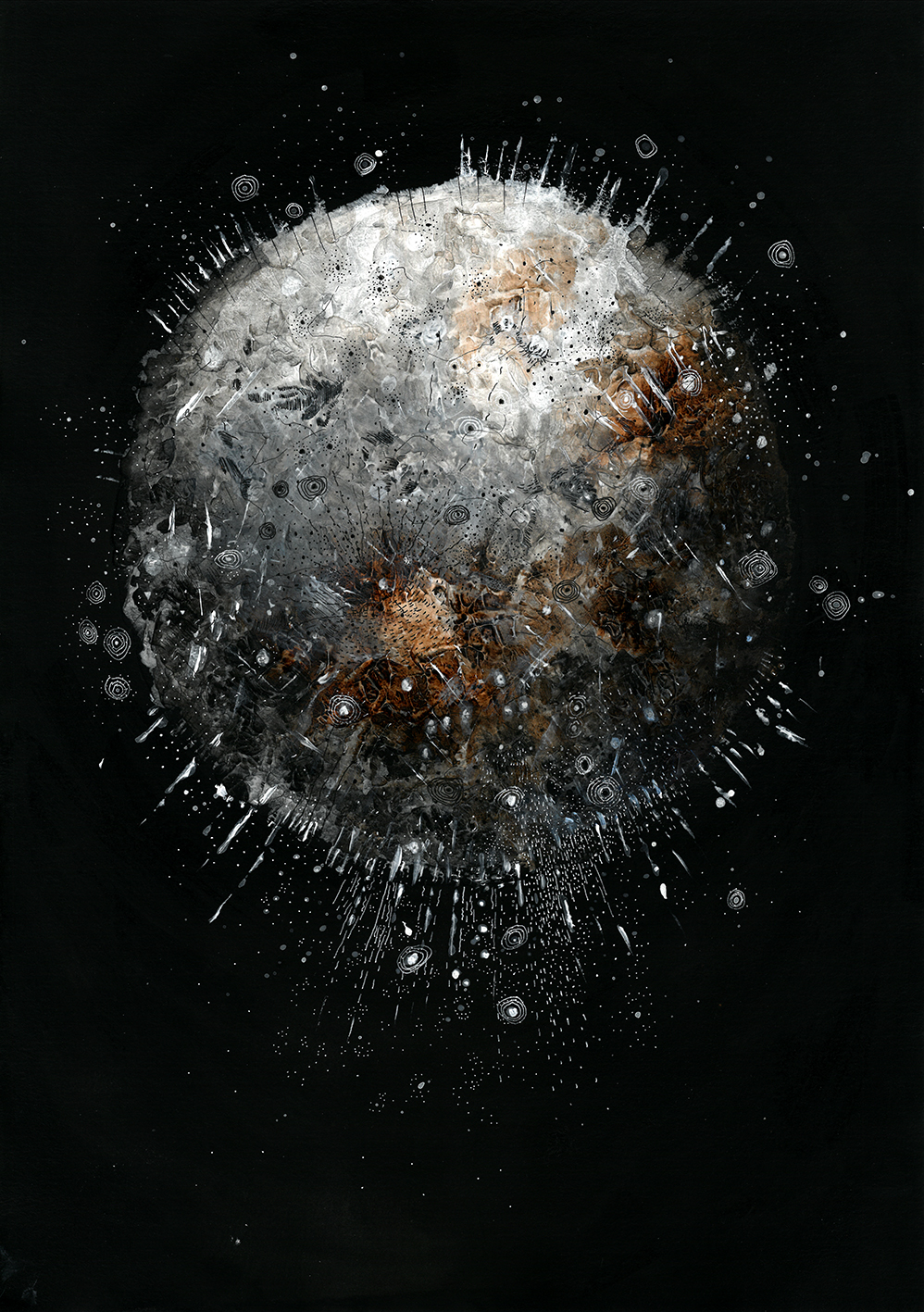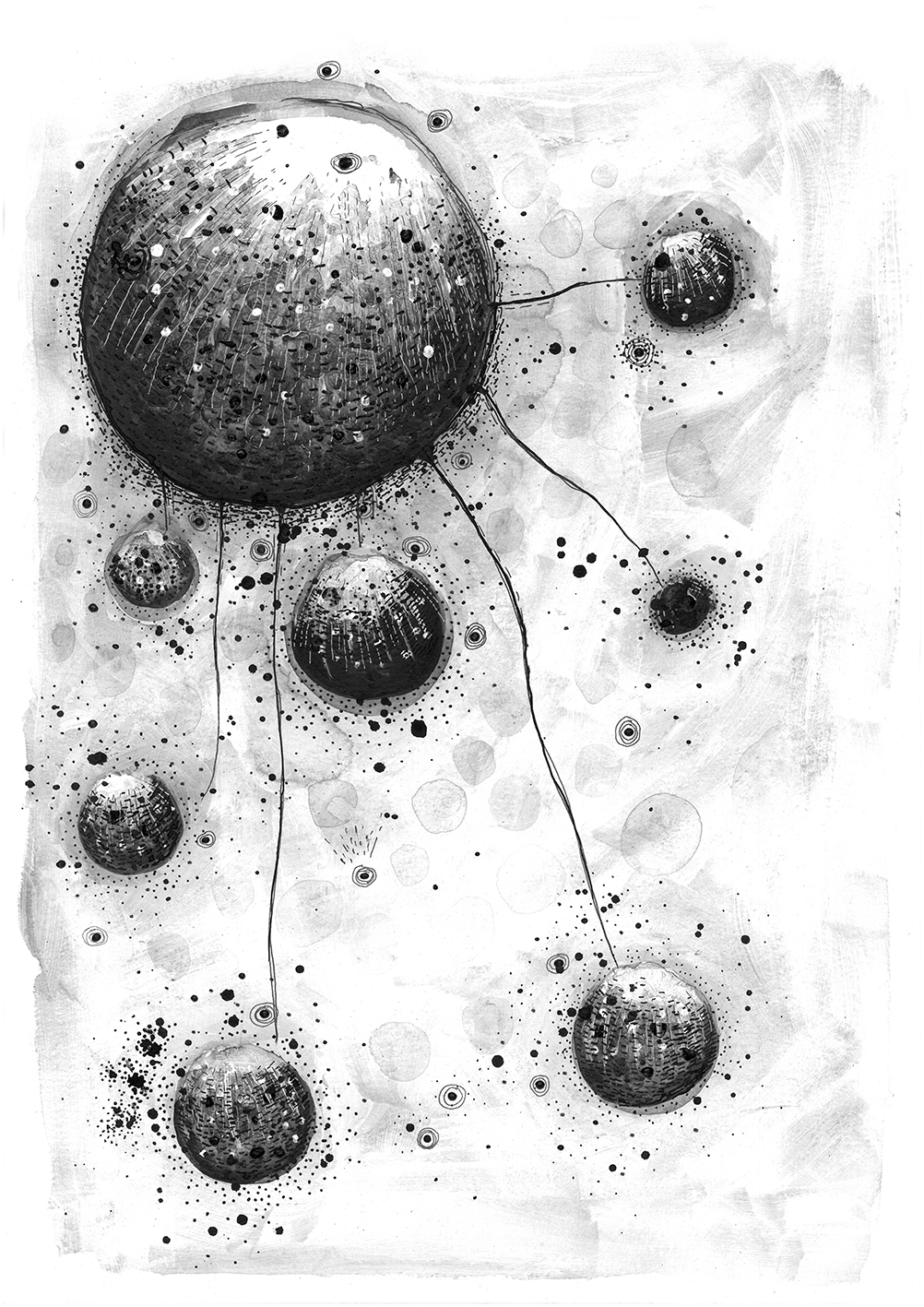My illustrations often discuss political ecology and our relationship to outer space to question our learned
or accepted ideas of 'progress' that have been destructive to ecosystems and each other. I often depict scenes
without humans to take away from the human narrative. Without a thriving Earth, there would be no place
to discuss social issues. I illustrate barren planets that appear moon-like. These are fictional ghost
planets where humans have managed to entirely ruin ecosystems.
If humans colonize space, we will take our destructive habits with us. Without humans, nature manages to flourish. The gentler path is to realize we are not the center of existence but rather a part of a delicate
balance that requires our active participation in consuming less resources and removing our
aggressive and often invisible, speciesist influence over beings in our environment.
Space exploration has a history of exploiting both animals and astronauts' physical and mental health:
From the deaths of dogs and chimpanzees sent to space to test the experience for us, to the high levels
of radiation exposure that humans receive and the culture instilling the fear of expressing psychological
stress in order to not seem weak or unreliable to the team while working in space as an astronaut.

Dream Planet
Ink and acrylic on 300gsm watercolor paper
Cape Town, South Africa
More info
"Dream Planet, 2020. A place of abundance where one can dream."
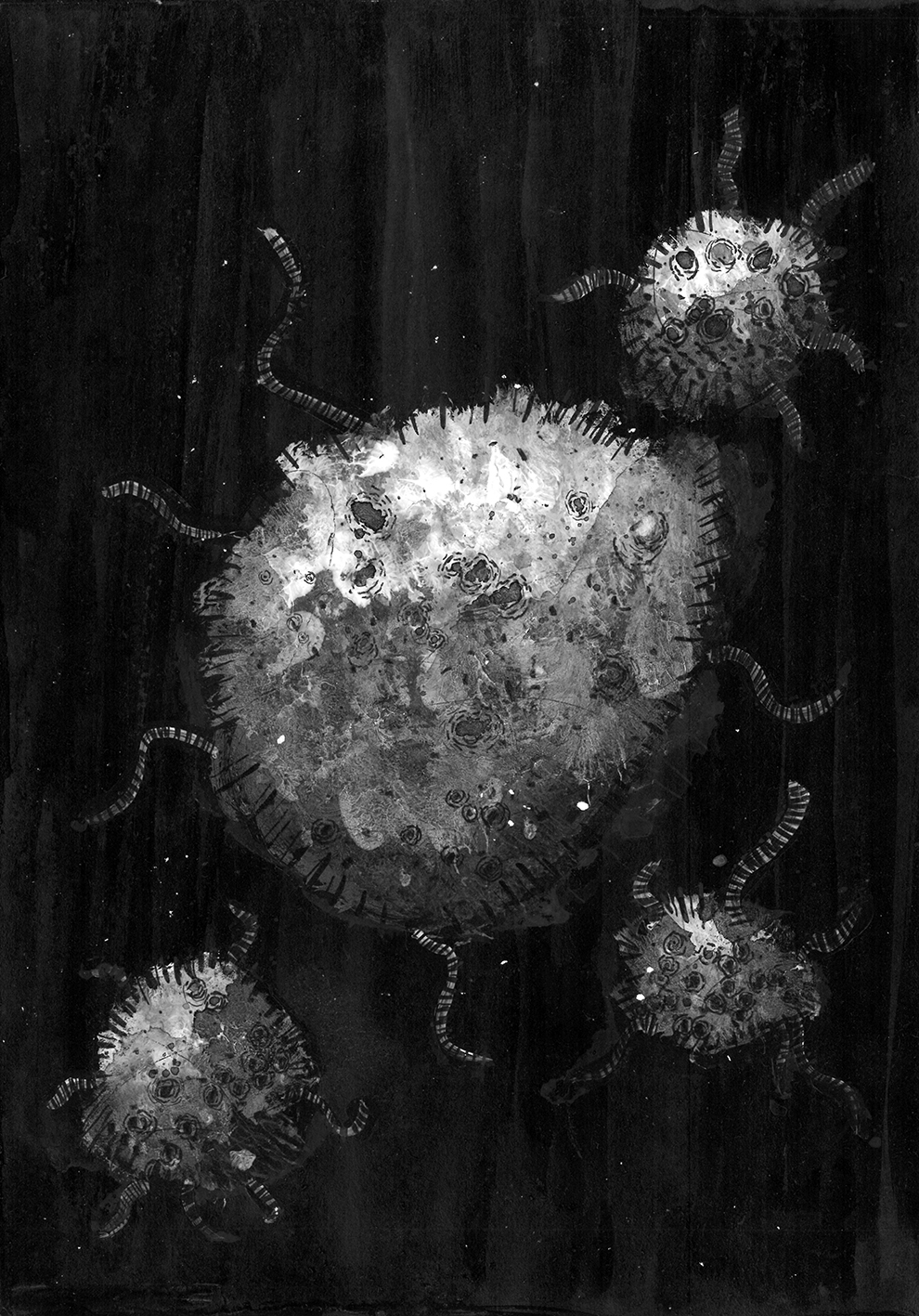
Depths: Amoebas
Ink and acrylic on 300gsm watercolor paper
Cape Town, South Africa
More info
Depths: Amoebas, 2020. There is still much to learn about in the deep sea, yet our focus is on space travel and mining in space for large profit. The sea is our waste bin and full of noise pollution from ships, seismic blasting and sonar. The microscopic creatures below echo what alien life is being searched for above.
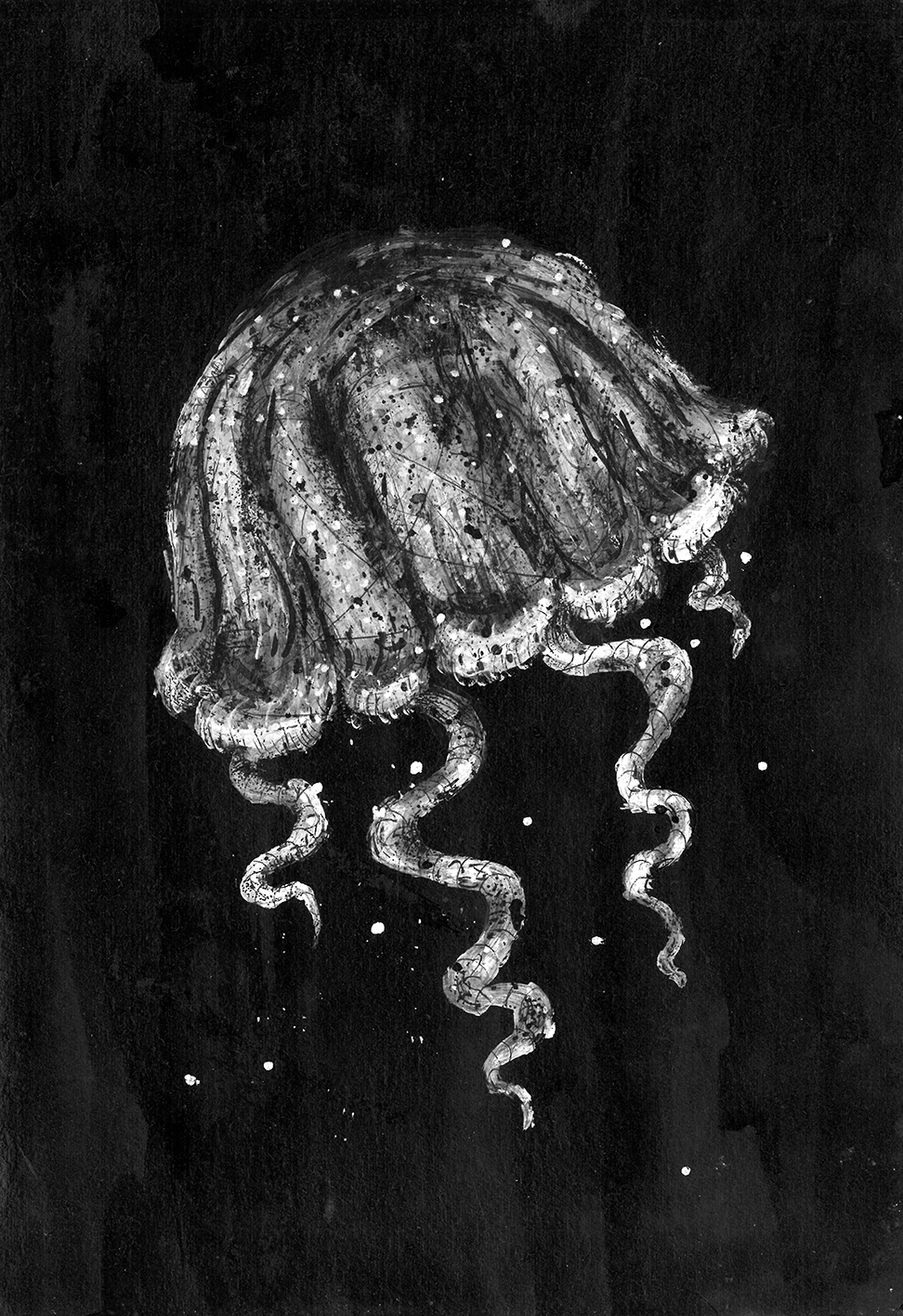
Depths: Jelly Fish
Ink and acrylic on 300gsm watercolor paper
Cape Town, South Africa
More info
Depths: Jellyfish, 2020. There is still much to learn about in the deep sea, yet our focus is on space travel and mining in space for large profit. The sea is our waste bin and full of noise pollution from ships, seismic blasting and sonar. The microscopic creatures below echo what alien life is being searched for above.
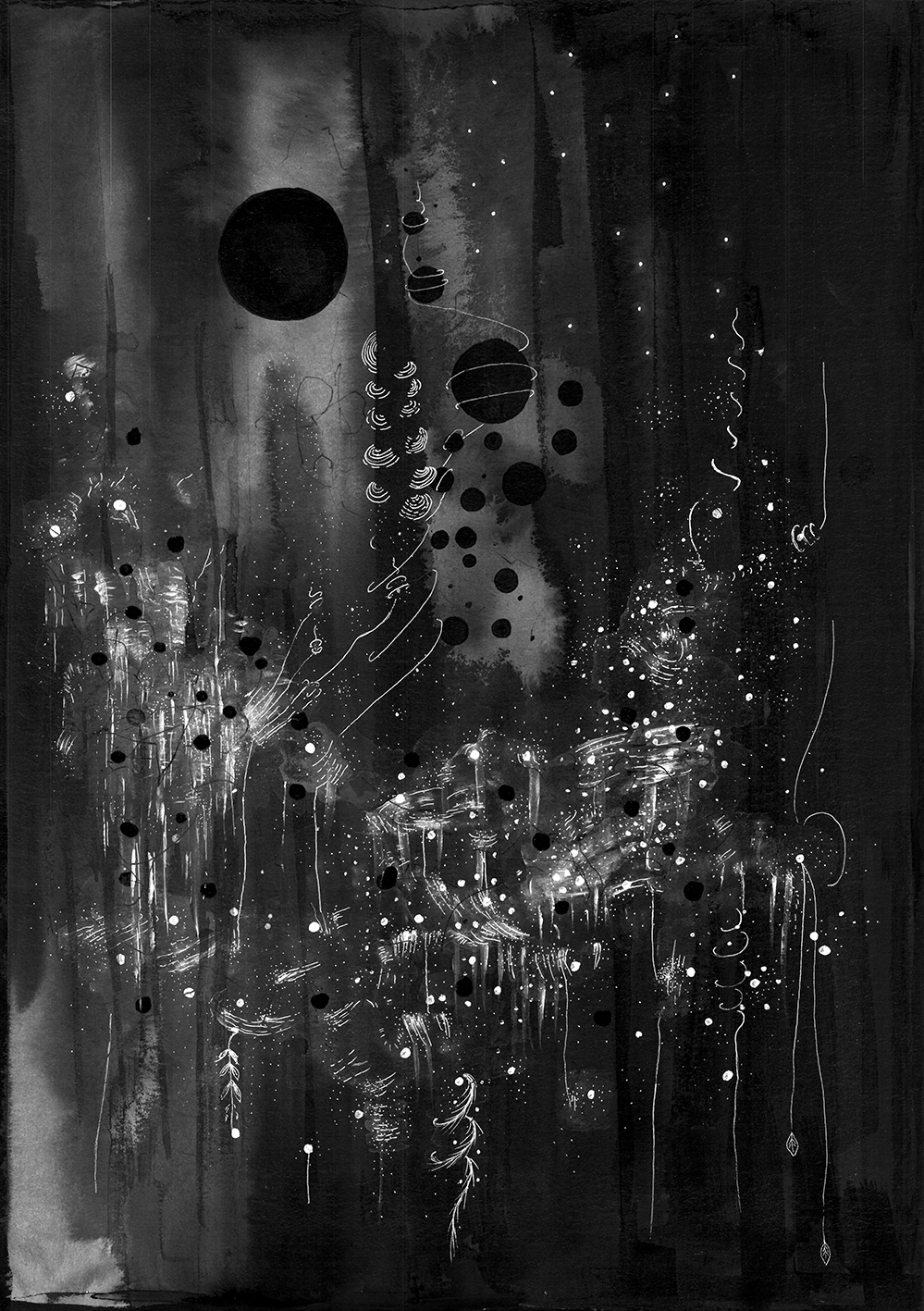
Nebula
Ink and acrylic on 300gsm watercolor paper
Cape Town, South Africa
More info
The nebula has an eery and solitary feeling. It reminds me of the ending to the 2001: A Space Odyssey film where the main character is hurtled through space, far from human existence, is encapsulated and placed in a human zoo made by invisible, intelligent beings. Time passes and the character dies in this room but is reincarnated into an alien-like baby to be sent back to Earth. The inner journey to growth is as vast as space and so I depict the macro of space to represent the micro of ourselves or our ecosystems. If humans remain determined to colonize space, it will be found that the romanticized idea of it will be met with spending more confined time with ourselves, as because of the harsh environment, we would still live in suits and enclosed spaces.
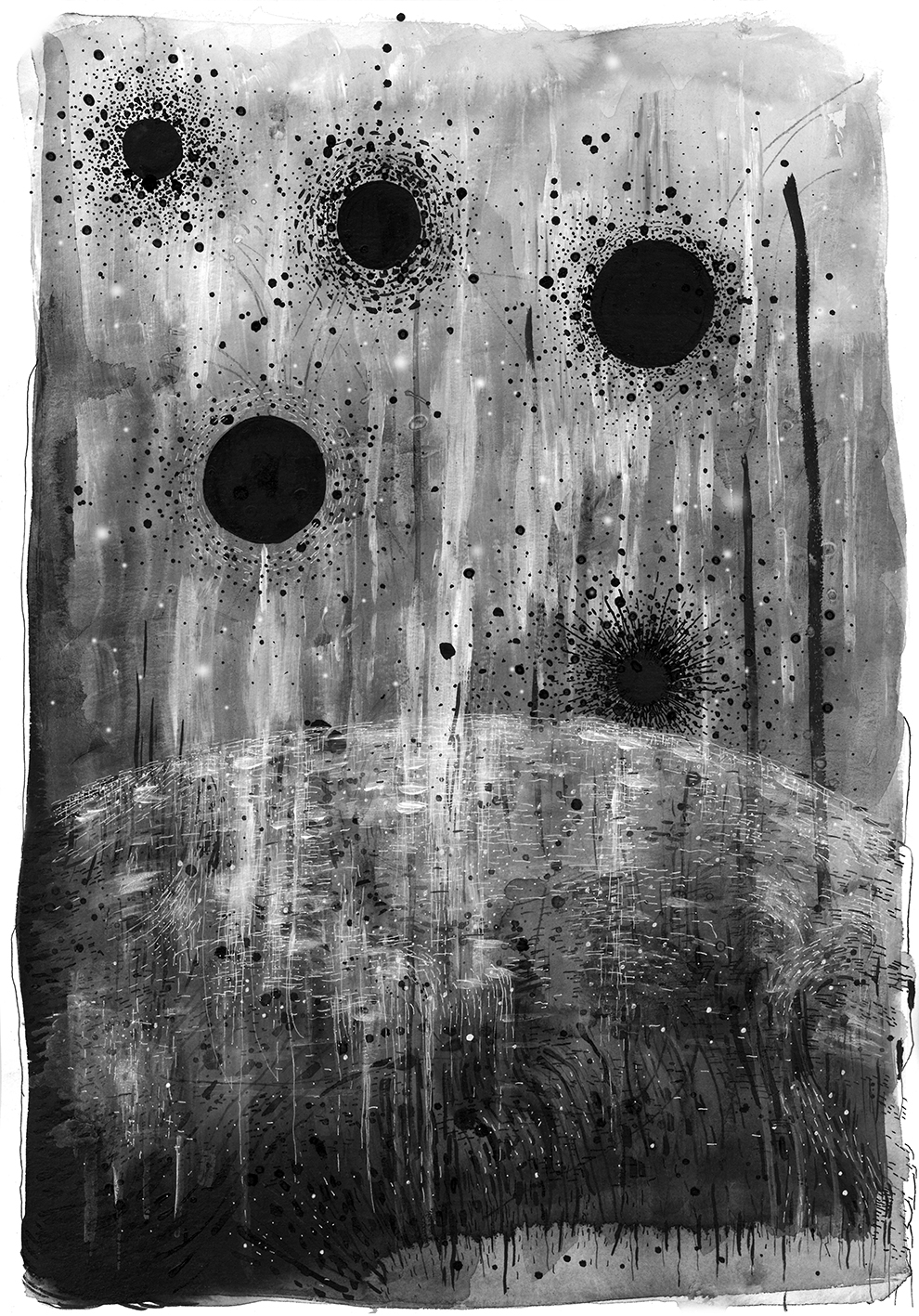
Planet Horizon
Ink and acrylic on 300gsm watercolor paper
Cape Town, South Africa
More info
Planet Horizon, 2020. View from another planet.
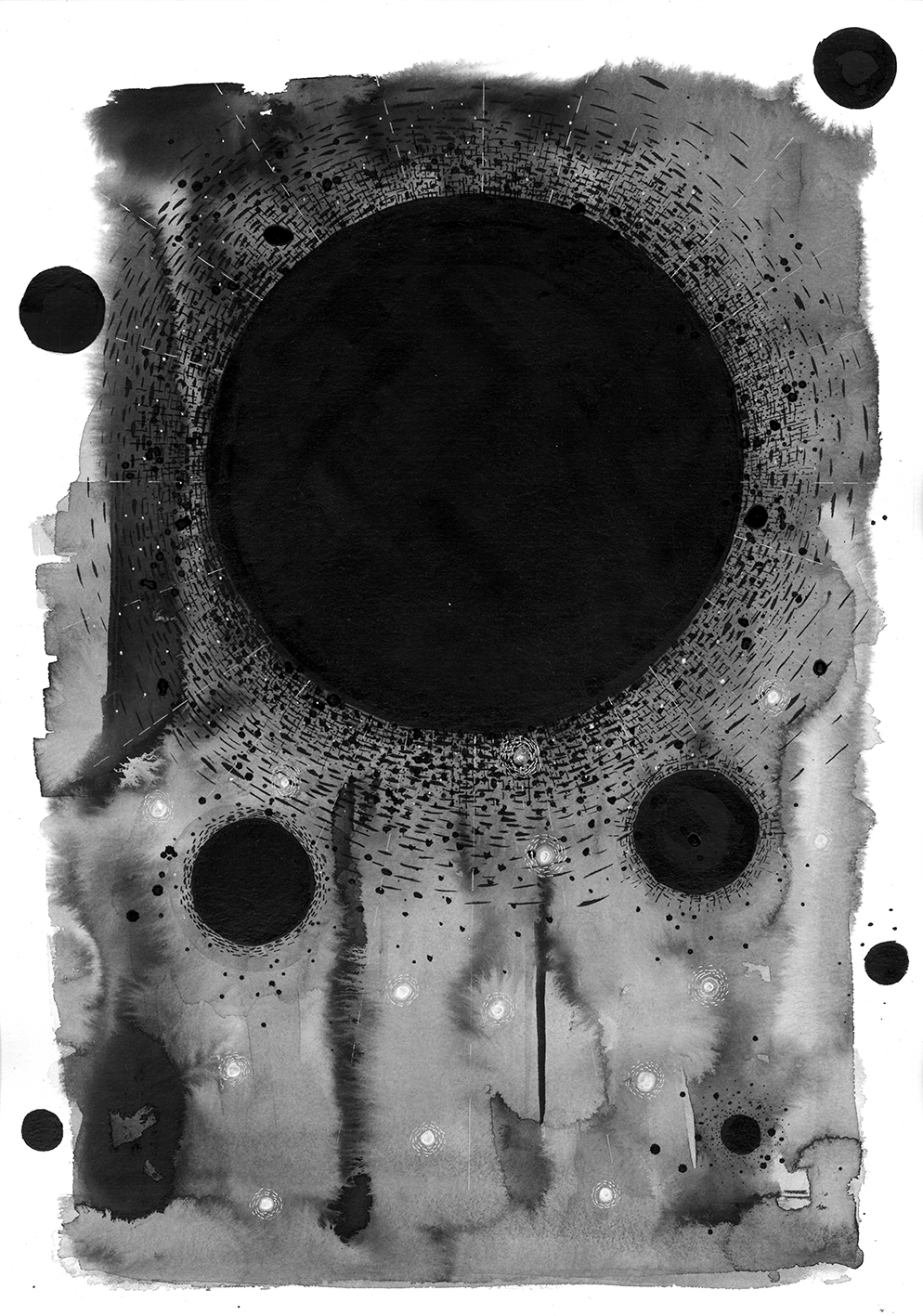
Void, 2020
Ink and acrylic on 300gsm watercolor paper
Cape Town, South Africa
More info
Void, 2020. Meditate into the depths of yourself.
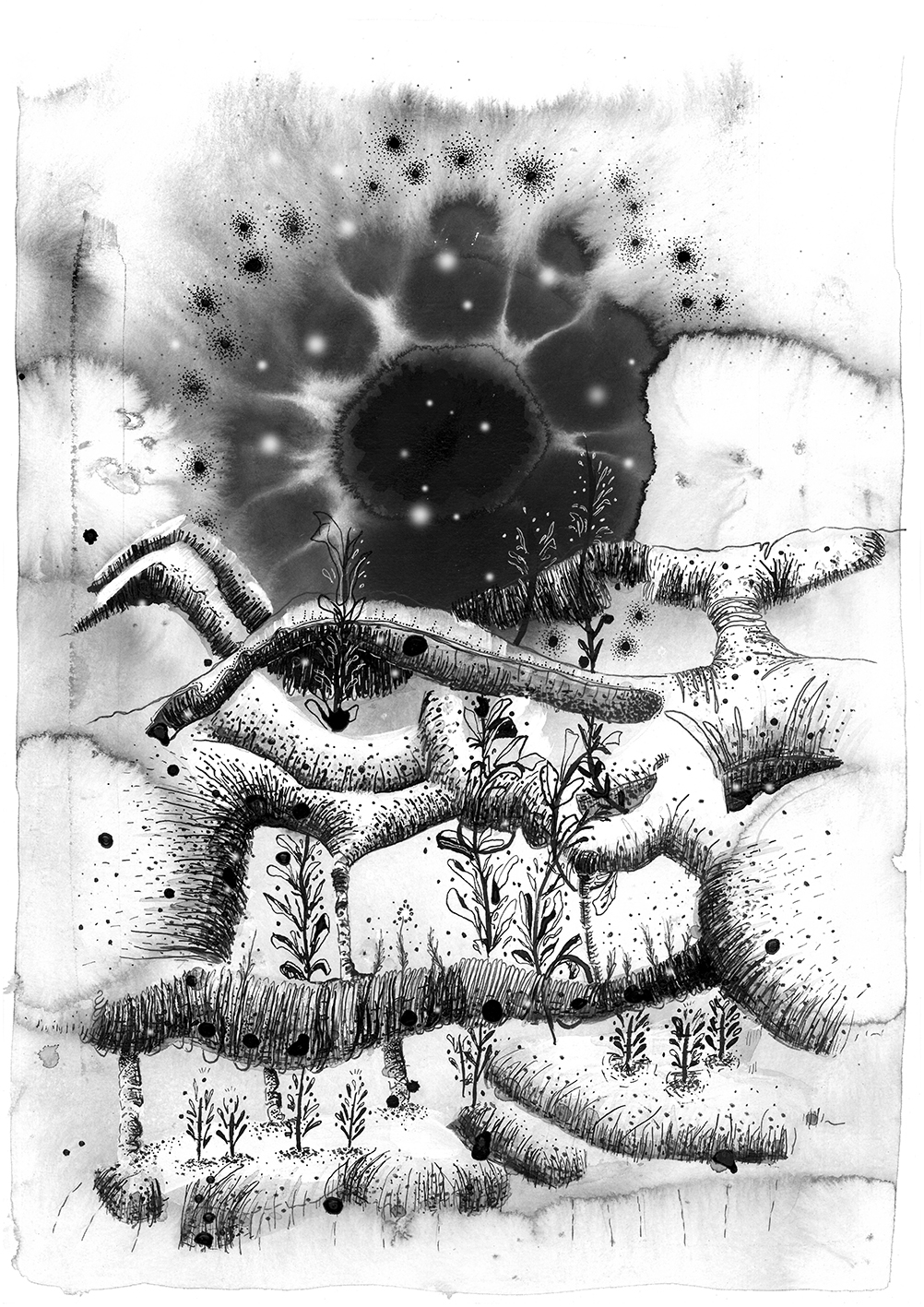
Sunrise, Foliage, Labyrinth
Ink and acrylic on 300gsm watercolor paper
Cape Town, South Africa
More info
"Sunrise, Foliage, Labyrinth, 2020"
'Rain' piece by Richard Rive (published in Prufrock Magazine's summer 2018 issue) around the time of
the Cape Town water crisis. While reading Rive's piece, I remember its version describe rain plummeting
towards Cape Town's pavements in abundance, while we suffered a contrasting drought. Rive's rain
was a flooding symphony for two humans drowning in their derailing relationship while
under oppression during Apartheid.
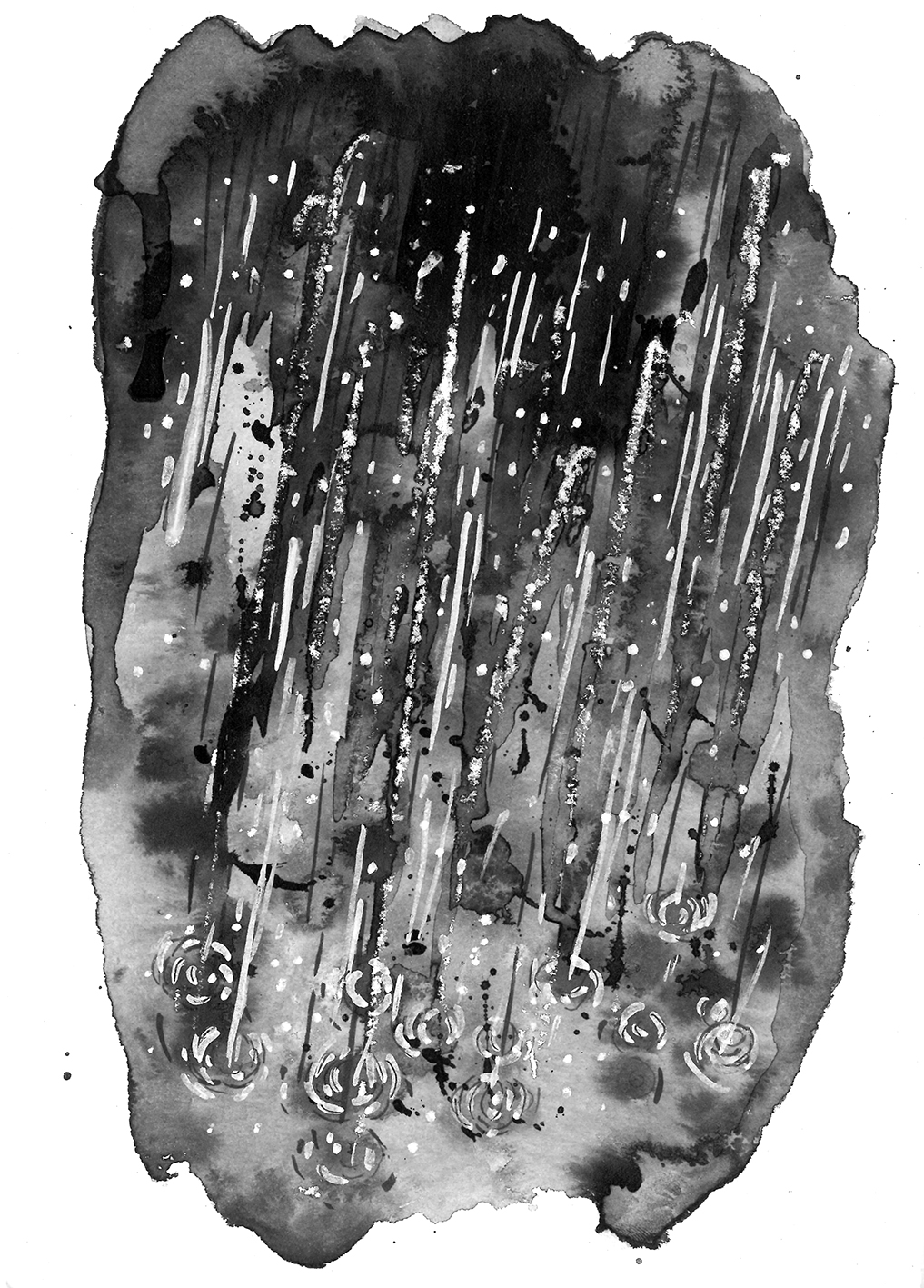
Rainfall
Ink and acrylic on 300gsm watercolor paper
Cape Town, South Africa
More info
Depths: Rainfall, 2020
'Rain' piece by Richard Rive (published in Prufrock Magazine's summer 2018 issue) around the time of the Cape Town water crisis.
While reading Rive's piece, I remember its version describe rain plummeting towards Cape Town's pavements in abundance, while we suffered a contrasting drought. Rive's rain was a flooding symphony for two humans drowning in their derailing relationship while under oppression during Apartheid.
